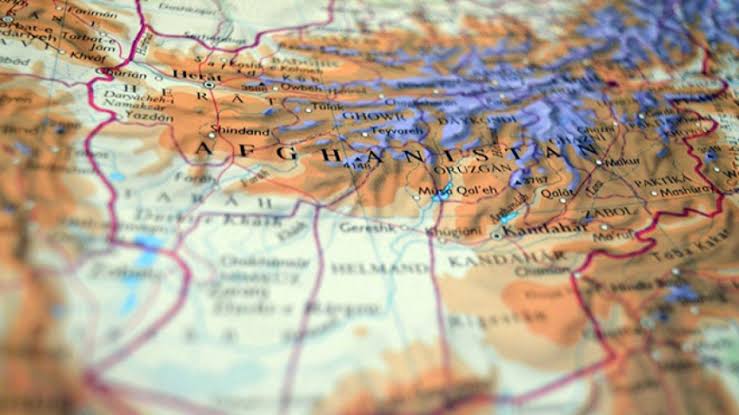Geopolitics of Afghanistan and a look at The geopolitics of Afghanistan deals with the geographical, historical, and political location of this country in the heart of Asia. Because of its strategic location, Afghanistan has long been the focus of regional and global powers.
Kabul 24: This country, which is known as the crossroads of Asia, is located in the neighborhood of important countries such as Iran, Pakistan, China and Central Asian countries (Tajikistan, Turkmenistan, and Uzbekistan).
Geographical location and strategic importance
Afghanistan is located in the center of the region known as “Heart of Asia”. This country was not only a historical passage for migrations and invasions, but also considered the main trade route from East to West. Afghanistan’s presence near the two major world powers, China and Russia, as well as its proximity to the Persian Gulf and Central Asia’s energy sources, has given it an important geopolitical position.
The influence of foreign powers
Due to its geographical location, Afghanistan has always been the target of foreign powers’ influence. In the 19th and 20th centuries, Afghanistan was used as a battleground for the colonial rivalry between the British Empire and Tsarist Russia, which became known as the “Great Game”. In the 20th century, the presence of the former Soviet Union and then the intervention of the United States of America turned this country into a center of geopolitical conflicts.
Internal factors affecting geopolitics
Internal factors such as diverse ethnic composition, the presence of natural resources (such as mineral reserves and raw materials), as well as a long history of internal conflicts between different groups, have played an important role in Afghanistan’s geopolitical dynamics.
Ethnic groups such as Pashtuns, Tajiks, Hazaras and Uzbeks, Sadats, Ghazalbash, Bayats, Turkmen, Sikhs and Hindus and others have each played a special role in the power structure of this country and have always led to internal tensions.
Islamic Emirate and its influence on the geopolitics of the region
With the emergence of the Islamic Emirate and the seizure of power in the 1990s and again in 2021, Afghanistan’s geopolitics underwent profound changes. The Islamic Emirate, which was initially considered as an internal force, over time had an impact on Afghanistan’s relations with foreign powers such as Pakistan, Iran, Russia and China. Currently, the caretaker government is looking for international interactions with regional and global countries.
The role of regional actors
Neighboring countries like Pakistan and Iran have always sought to influence the internal politics of Afghanistan. Pakistan has tried to strengthen its influence in Afghanistan due to historical relations with all parties and groups and the Islamic Emirate, as well as concerns about India’s influence in Afghanistan. Iran has always sought to balance its relations with Afghanistan due to shared borders and security concerns.
The future of Afghanistan’s geopolitics
Afghanistan’s geopolitical future depends on the balance of power between regional and global actors. Geopolitical changes in the region, including the strengthening of the role of China and Russia, as well as the reduction of American influence, may bring new conditions for this country. Internal challenges such as the continued interventions of different countries can also affect the geopolitical situation of this country.
Recommended sources:
1. “The Great Game” by Peter Hopkins
A book that deals with the colonial rivalry between Britain and Russia in Afghanistan and Central Asia.
2″Afghanistan: A Cultural and Political History” by Thomas Barfield
A book that deals with the history and political geography of Afghanistan.
3. “Afghanistan: The Mirage of Peace” by Chris Johnson and Jolyon Leslie
A look at the impact of civil wars and foreign actors in Afghanistan.
4″Taliban: Militant Islam, Oil and Fundamentalism in Central Asia” by Ahmed Rashid
Investigating the emergence of the Taliban and its impact on the geopolitics of the region.
5. “No Good Men Among the Living” by Anand Gopal
A narrative of the American war in Afghanistan and its effect on the people of this country.
Saboor Bayat







